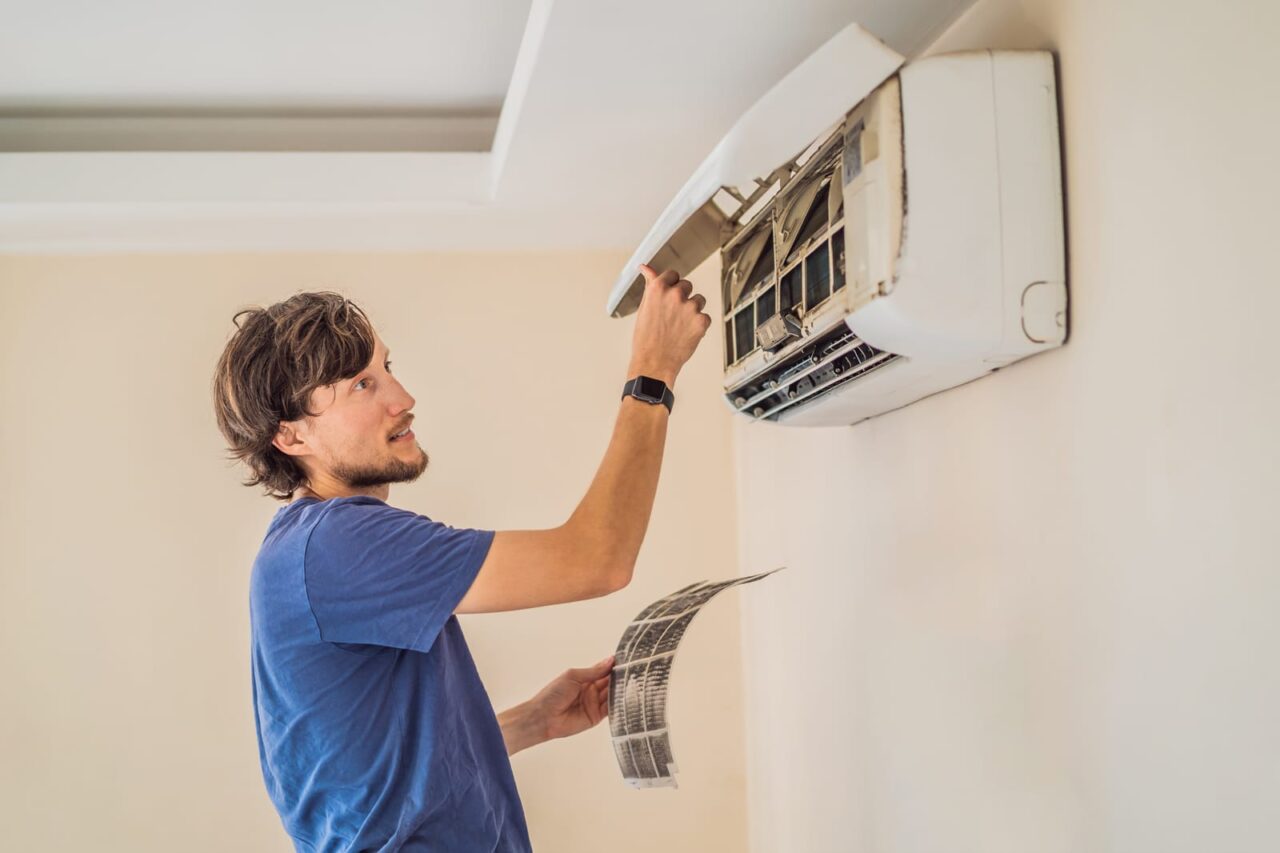Featured
You might have an air conditioner in your home right now. With summer coming on, you’ll probably use it a great deal. In July or August, you might run it every day.
If you only have a window unit, though, that will not cool the whole house evenly. You ought to feel comfortable in the room where you installed it, but you will still feel hot in other parts of the house. You may also have a central air unit, but it’s old and on the way out. Maybe it doesn’t cool the whole house evenly, or it no longer works at all.
Let’s discuss whether or not you should replace your air conditioner this year.
Do you need to replace your air conditioner this year?

Can You Fix Your Ductwork Instead?
If you’re unsure whether you should replace an air conditioner, you should contact an HVAC company. They will send someone over who can look over your current unit and your ductwork as well.
A new central air unit might appeal, but it usually costs around $3,800 to $8,000. If you want a fancy one, you might pay the high end of that range.
Maybe you’d rather not spend that money this year. Perhaps you have other pressing expenses, like mortgage payments, back rent, student loan payments, etc. Maybe you can fix your ductwork, and that will get you better air circulation, though.
Duct leakage will result in energy loss and poor airflow, which might happen without you realizing it. Ductwork can break down over time. If you’ve got an older house, you may have some faulty ductwork causing uneven cooling throughout the house’s various floors and rooms.
Getting someone from a reputable HVAC company over who can look at your ductwork might reveal the problem. If they feel they can replace some ductwork, that should cost less than an entirely new central air unit. You might pay a tenth of what you would if you replaced the AC.
Maybe Replacing Some Components Can Help
You should also realize that your central air unit might have faulty components. If you have an older unit, that’s probably the case.
If you don’t get yearly maintenance on that unit, it’s also more likely you’ll have worn-out parts. You might also have creeping vines and other growth that can hamper the unit’s functionality if it’s outside on the side of the house or in the backyard.
Someone from an HVAC company can look at the current unit and determine whether they can fix it with some relatively cheap repairs. You can ask them whether they believe that the repairs make more sense or whether you’re better off replacing the unit entirely.

How Long Will You Stay at the House?
How long you’ll stay in that house also makes a difference. Maybe you have a situation where the HVAC company worker says you can’t get much more usable life out of the current central air unit. If you’re not going to stay in that house for much longer, though, then spending $8,000 on a brand-new unit you will barely use makes little sense.
Instead, you might prolong the current unit’s usable life for the moment. You can let the home’s next owner do the costly replacement in the next couple of years.
What Kind of a Price Can You Get?
If you feel that you’ll be in that house for a while, and you either have an old central air unit that you should replace or a window unit, getting a brand-new central air conditioner makes sense. You’ll spend some money on it, but you’ll likely feel it’s worth it when you enjoy the luxurious feeling of cold air flowing over you when it’s sweltering outside.
You might ask the HVAC company what kind of a deal you can give you. If they have a financing option, maybe you can afford the price if you space out the payments over a couple of years.
If you work from home, you may also use the new conditioner as a tax write-off. Those who do home-based work can write off things like furnace maintenance and repairs or air conditioner purchases, maintenance, or repairs.
Getting a new air conditioner might seem luxurious, but most modern homes have them, especially in some parts of the country. You’ll surely enjoy your new AC unit while you have it, but you may also use it as a key selling point if you ever decide to move on from that house.






























